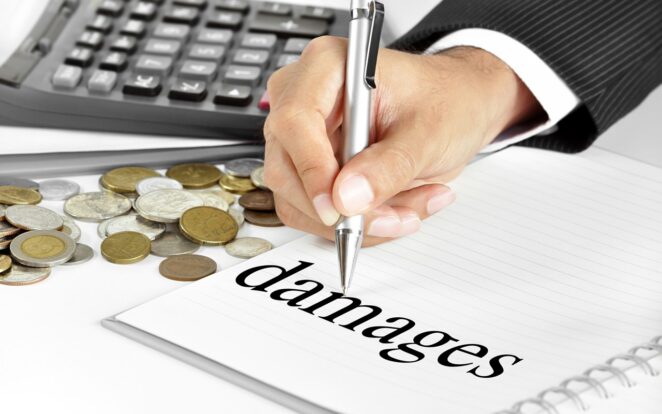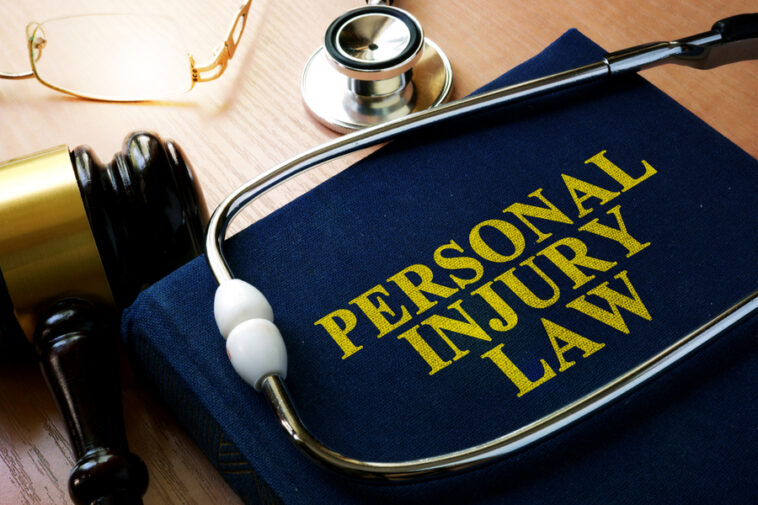If you’ve suffered a personal injury, finances are probably the last thing on your mind. That is until you realize the bills are piling up and you’re facing a long road of recovery. Before you worry too much about how to pay for it all, learn how settling your personal injury case can steer you toward financial freedom.
Seeking Professional Advice
When settling a personal injury case, it is highly recommended that you seek professional advice from qualified professionals. Discussing your case with experienced attorneys at cz.law, insurance adjusters, and medical professionals can help ensure that you receive the best possible outcome for your particular situation.
A knowledgeable attorney can offer valuable insight into the legalities of your case, the amount of compensation you are entitled to, and the best way to move forward with filing a claim. Additionally, consulting with a doctor can be beneficial for understanding both short-term and long-term medical care options for any injuries you have sustained as well as gaining an accurate assessment of any future medical issues or financial costs related to your injury. Insurance adjusters can be particularly helpful in negotiating settlement claims either on an individual basis or on behalf of an insurance company.
It is highly recommended that you take time to educate yourself on the process and assemble a team of qualified advisors before attempting to settle any personal injury case.
Understanding the Legal Process

The process of settling a personal injury case begins when you bring a claim against the other party for wrongfully causing an injury. In order for you to recover financial compensation, you must show that the other party was negligent—meaning that they failed to exercise reasonable care for your safety—and that their negligence caused your injury. The legal system in most jurisdictions uses the doctrine of comparative negligence, which means that both you and the other person will be assigned a percentage of fault. Your award or settlement amount will then be reduced by your own percentage of fault.
It is important to understand that even if you believe another party is primarily responsible (or entirely responsible) for your injury, the court must still decide whether or not to award damages after considering all relevant evidence and testimony presented in court hearings and depositions. The decision will ultimately come down to a jury’s assessment of what they believe is an appropriate amount of compensation—which could be significantly more than or less than what either side initially proposed. It is wise, then, to enter legal proceedings prepared to make reasoned and realistic offers on behalf of yourself or an attorney representing you during trial negotiations.
Establishing Liability
Establishing liability can be accomplished through a variety of methods including evidence gathering, interviews with witnesses, consulting experts, and analyzing applicable court decisions. Your lawyer will be able to assess the facts and circumstances of your case and advise you on what steps need to be taken in order to establish liability.
Your lawyer may also assist you in filing a lawsuit against the defendants responsible for your injury. It is important to remember that once liability has been established, the case must still move forward through pre-trial negotiations, mediation, or a trial process in order for full financial recovery to occur.
Learn about pre-trial negotiations here. Understanding all of your options ahead of time and working with an experienced lawyer can ensure that you obtain justice for your injuries.
Calculating Damages

Economic damages, also known as compensatory damages, are those that can be verifiably quantified in a monetary value such as property damage, medical expenses, and lost wages. Non-economic damages are more subjective in nature, including compensation for physical pain and suffering or emotional distress resulting from personal injury.
Calculating economic damages includes evaluating:
- Medical bills associated with the injury
- Any indication of future costs related to ongoing care
- Any wages that were lost due to missed work days following an accident
- Potential loss in earning capacity if disability results from the injury
- Property damage
Non-economic or “general” damages typically do not include a specific dollar amount but are instead based on the injured person’s overall experience and harm caused by the at-fault party’s behavior. This type of loss could include pain and suffering, inconvenience, mental anguish, or psychological trauma caused by an accident or injury incident. Monetary values associated with non-economic losses must follow certain guidelines as established by state law or precedents set through court decisions for similar cases.
Negotiating a Settlement
When it comes to negotiating a settlement in a personal injury case, it’s important to remember that this process should be approached with an understanding of both legal principles and practical considerations. In order to obtain a fair settlement, you must demonstrate knowledge of the law and present your case in a manner that can convince the other party of your demand for compensation.
To maximize your chances for financial recovery in such cases, experienced attorneys may often engage in settlement negotiations with opponents before proceedings begin. This helps out both sides by providing an opportunity for discussion away from the courtroom in order to reach outcomes amenable to all parties involved. After careful deliberation and precise negotiation strategies, victims may reach monetary agreements without resorting to time-consuming litigation processes. A skilled attorney can skillfully handle these discussions on behalf of their client so as not just win monetarily but also settle matters quickly and decrease potential risks associated with inviting third-party intervention or bringing a suit before recourse is sought elsewhere (such as small claims court).
Accepting a Settlement Offer

It’s important to consider all of the potential benefits and risks before deciding whether this is the right move for you.
When deciding whether to accept a settlement offer, it’s important to think about your long-term goals, not just your short-term needs. If you accept an offer that seems like a good deal now but puts you in an untenable situation over time, then it may not be best for you.
It’s also important to recognize that accepting a settlement will limit your ability for any future recourse against those responsible for your injury. Once you have accepted the terms of a settlement, it can be difficult if not impossible to revive or renegotiate if something goes wrong.
Final Verdict
Settling a personal injury case is not always an easy process, but with the right attorney by your side, it can be done. The key to success is understanding your legal rights and making sure that you are following all of the necessary steps for financial recovery. By doing this, you will have access to the compensation you deserve and can finally begin recovering from any losses associated with your accident.




